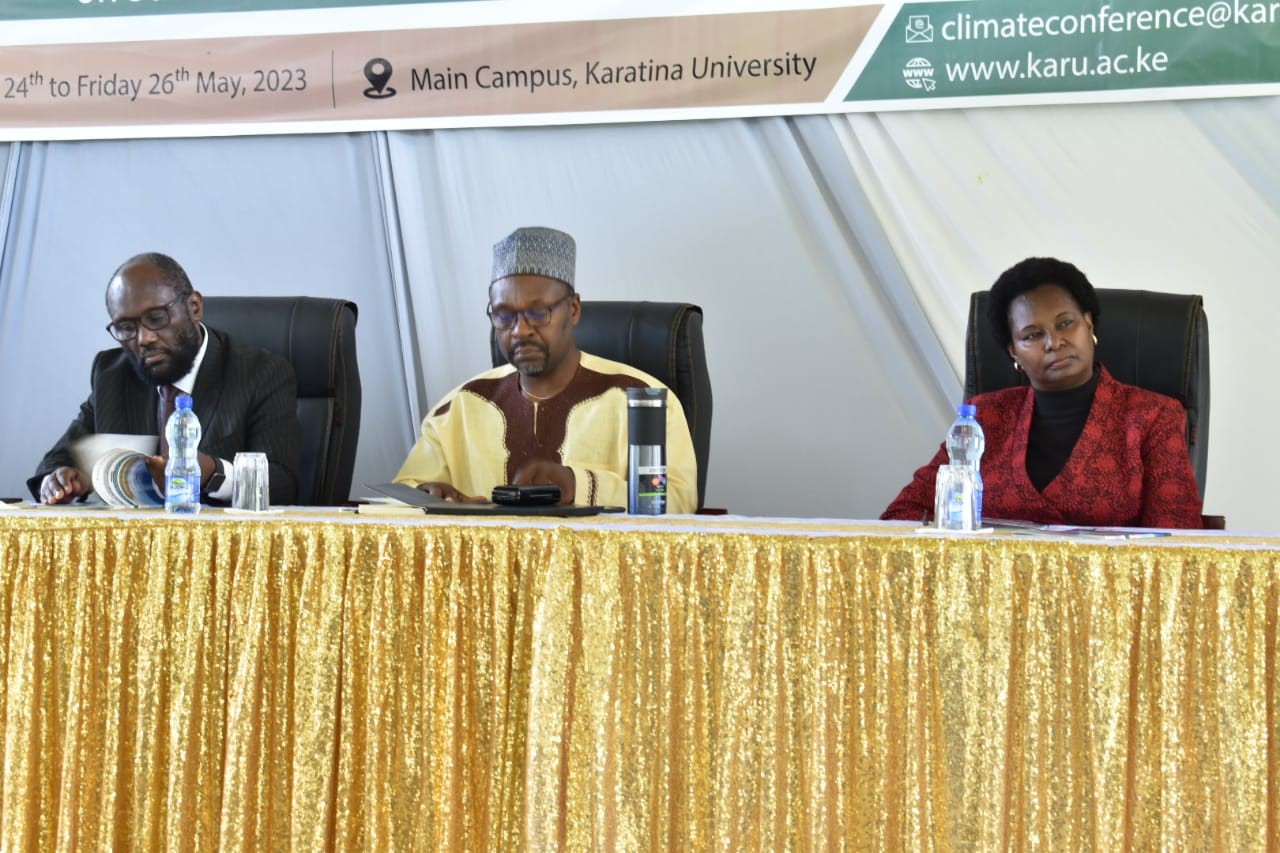
The Chief Guest, Dr. Cyrille-Lazare Siewe (Centre), the Vice Chancellor, Prof. Mucai Muchiri and Ms. Susan Gitonga representing the Council Chairman, Prof. Francis Gichaga
The International Conference on Climate Change and Sustainable Development ended on a high note on Friday, 26th May 2023 as participants made concrete resolutions on ways to tackle climate change and its impacts. Under the Theme ‘Mitigating the Impact of Climate Change & Biodiversity Loss on Sustainable Development: A Call for Action’ the Conference ran from Wednesday, 24th to Friday, 26th May 2023. The official opening was by the Chief Guest Dr. Cyrille-Lazare Siewe, the Kenya Country Programme Director, United Nations Environment Programme. It was also graced by the Chairperson of Council, Prof. Francis Gichaga represented by Ms. Susan Gitonga. The Vice Chancellor, Prof. Mucai Muchiri gave the welcoming remarks to participants who came from Uganda, Rwanda, Tanzania, Canada, USA and Kenya.
Emanating from the 3-day Conference, the participants agreed to drive the following as resolutions that will lead to strategic policy direction:
- To have a Demonstration Centre on Climate Change resilience and adaptation in collaboration and coordinated activities by state and non-State actors globally for the agenda on Climate Change;
- Karatina University and other regional universities to train on short courses especially on digital agriculture in their Centres of Excellence;
- Use languages that are within the reach of the common people, for example Kiswahili in climate change discourse;
- Young children are very good ambassadors for environmental conservation and such projects should be expanded regionally borrowing best case study of Karatina University;
- Environmental virtues are better imparted to children at a tender age so school curricula should enhance learning areas in climate change;
- Universities as depositories of knowledge and research activities should bridge the gap on impactful climate change research;
- Devolve funding to local institutions for them to implement programmes at community levels;
- Communities, especially the marginalized, to be empowered on mitigation and adaptation strategies;
- Review regulations, laws and policy, for example, the Climate Change Act (2016) to comply with developing trends;
- There is urgent need to conserve our wetlands, lake basins, for example, Kidogo Lake Basin in Rwanda and L. Victoria lake basin. It calls for action as the lakes have shrunk and they will affect the larger Great Lakes region and hence conflicts will arise;
- That green opportunities available need to be harnessed. Waste in our environment can be opportunities for wealth.

